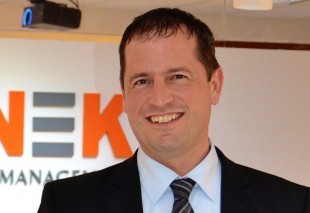

Comment: Sustainability will drive social change

Traditionally, December is a time for reflection, a time to assess the achievements made over the previous 12 months and the opportunities that lie ahead. And as the UNWTO Year of Sustainable Tourism draws to a close, it is fair to say that the tourism industry overall has faced unprecedented pressure and change in 2017, from hyper-local supply and demand imbalances to global innovations in digital infrastructure.
However, one thing that has remained constant is the commitment to enhance sustainability and, in 2017, this commitment has evolved from operational to developmental, using the three ‘R’s (reduce, reuse, recycle) as the bedrock for exemplary operations, particularly in emerging or even immature markets.
When sustainability is truly effective, it has the power to end poverty and hunger; protect the world from environmental degradation; and foster prosperous, peaceful, just and inclusive societies. Tackling such issues in a luxury hotel may seem illogical, but in fact, it makes sound economic sense due to the industry’s unique position.
Take the Kigali Marriott Hotel, the chain’s first property in Sub-Saharan Africa and the largest in Rwanda when it opened in 2014. Marriott placed the local community at the heart of its strategy, creating 500 jobs and working with local community groups, boosting education and promoting small-scale businesses by incorporating local goods, such as baskets, cheese, honey and coffee in its supply chains.
Beyond the employment and enterprise potential, hotels generating renewable energy on-site can provide surplus energy to the local grid; indeed hotels built or retrofitted with sustainability in mind, facilitate opportunities for local and specialist suppliers. And it’s not just energy. In many arid environments, recycling grey water, for example, is not only used for hotel landscapes, it can also be shared with local communities to irrigate crops or enhance public parks and gardens.
It is encouraging to see many hotels minimise their impact on the environment by implementing eco-designed products across laundry operations, bathroom amenities, cleaning products, stationery and other disposables. Some companies such as AccorHotels are even working toward a zero-carbon and zero-waste target for all owned hotels by 2021.
Mövenpick Hotels and Resorts has long been a staunch advocate of sustainability, using the Green Globe certification as a guideline to implement policies concerning community assistance initiatives, new technology and alternative energy sources in all properties worldwide.
Some of their more innovative projects include underwater clean-ups to preserve the marine environments in Egypt; the introduction of hybrid limousines and electric tuk-tuks in Thailand; and collaboration with charities such as Right4Children in Nepal, providing intensive vocational training and job opportunities for young people through the ‘SHINE’ initiative.
From here, the wider industry comes into play, working to ensure arrival numbers don’t over-stretch local resources and cause irreversible damage to delicate ecosystems. In Mauritius, the SARAKO Solar Farm supports carbon credits and offsetting, compensating the guest impact at a local level and supporting hotels to achieve carbon neutral operations.
Testament to the commercial value created by sustainable tourism, several new sub-sectors have emerged, from eco-tourism to eco-boutique hotels.
Not only does the Year of Sustainable Tourism promote holistic sustainability in key areas, it advances attainment of the 2030 Agenda for Sustainable Development and the 17 Sustainable Development Goals (SDGs), something that we at Farnek fully endorse.
However, leveraging sustainability to foster social opportunity, mobility and, ultimately, inclusivity, isn’t the responsibility of the private sector alone. Achievement of the SDGs depends on the combined support and action of policy makers and governments, as well as a change in consumer behaviour.
This month, SDGs take on additional meaning. December is the season of goodwill and giving and the transformative impact of tourism means it is well equipped to pledge the greatest gift of all — the opportunity to create a more sustainable, inclusive, prosperous and ultimately peaceful, global village.
About the Author: Markus Oberlin is the CEO of Farnek. Contact info@farnek.com